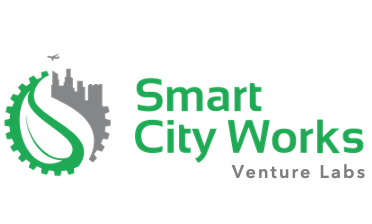Smart City Works Leads First-of-its-Kind Safer Building/Smarter Building Technology Deployment at EagleBank Arena
18
NOVEMBER 2019
***EMBARGOED UNTIL 12:30 P.M. NOV. 18, 2019***
Collaboration with U.S. Department of Homeland Security, CIT and George Mason University created an operational test facility for first responders to train and generate valuable research
WASHINGTON D.C.—Smart City Works, a next generation business accelerator focused on solving urban challenges, helped facilitate a first-of-its-kind operational test that allowed first responders to work with a next-generation sensor, visualization and analytics platform designed to keep buildings safe.
Local police, fire and EMS units from across Northern Virginia participated in an active-shooter exercise Nov. 18 at the EagleBank Arena on George Mason University’s Fairfax Campus. Nearly one hundred first responders, volunteers and researchers performed operational tests and training using smart-building technology developed under a U.S. Department of Homeland Security, Science and Technology contract.
The technology deployed throughout the arena showcased a novel approach not only to geo-locate occupants, identify threats, find victims and supply intelligence to public safety officials in a crisis, but also to improve day-to-day building performance, save energy and lower facility costs.
“This effort is a great example of collaboration between Department of Homeland Security, Science and Technology and the commercial innovation community,” Bill Bryan, the senior official performing the duties of the Under Secretary for Science and Technology in the Department of Homeland Security, said.
The exercise was part of a pioneering innovation program called SCITILabs, sponsored by DHS and run by Virginia’s Center for Innovative Technologies (CIT). SCITILabs uses the power of business acceleration programs to speed development and deployment of mission-critical technologies. Smart City Works, which runs the business acceleration and commercialization program for SCITI Labs, led the development of the smart building technologies deployed in the EagleBank Arena.
“This pioneering effort is really the future of innovation,” said David Heyman, co-founder of Smart City Works and former Assistant Secretary for Policy at the U.S. Department of Homeland Security. “Governments can speed solutions to market at lower cost and risk. Companies with new capabilities can gain critical early customer feedback. And universities can enhance their educational and research programs with real-world input. It’s a win-win-win to solve government challenges, strengthen products and improve results.”
Virginia Gov. Ralph Northam said: “Smart communities are an important next step…because they enable better local government services to everyone in the Commonwealth. The SCITI Labs research, using smart buildings to improve public safety, is a key example of how this can work. The program is a showcase for the power of collaboration among federal, state and local government, and our university and industry partners.”
The exercise integrated technology from several companies working together with Smart City Works to bring a new ‘smart building’ product to market. The companies included Mutualink, which developed the communications backbone and sensor suite; DataKwip, which provided the analytics platform and visualization to improve building performance and manage alerts; and EcoDomus, which developed the EagleBank Arena 3-D ‘digital twin’ model for the exercise.
Researchers at George Mason’s new Center for the Advancement of Human Machine Partnerships were part of the team evaluating coordination and interaction of first responders with each other and the technology.
“Smart building technologies need to be tested and evaluated by first responder teams and their leadership to provide direct input related to the viability and trust of current and future systems,” said Brenda Bannan, co-director of the center and an associate professor of instructional technology at the university.
George Mason Interim President Anne Holton was also enthusiastic about the research and the collaboration taking place. “I am thrilled that Mason has been able to contribute to such an inspiring collaboration and cutting-edge research on the intersection of smart technology and emergency response,” Holton said. “I am confident that together we can forge a future where such technology interacts with humans and our environment in similarly complementary, sustainable and progressive ways.”
About Smart City Works. Smart City Works is a next generation business accelerator—called a business actuator—that can rapidly move early stage ventures to commercialization, help speed products to market and reduce investor risk. We focus on start-ups and companies that improve the livability, operations, sustainability and resilience of cities, with a special emphasis on urbantech, IoT devices and the built environment. Smart City Works is a recent winner of the U.S. Economic Development Agency’s i6 Challenge Grant and is leading a new effort to develop a Smart Region in Greater Washington and Northern Virginia.
CONTACT: Glen Justice at gjustice@smartcityworks.io.
